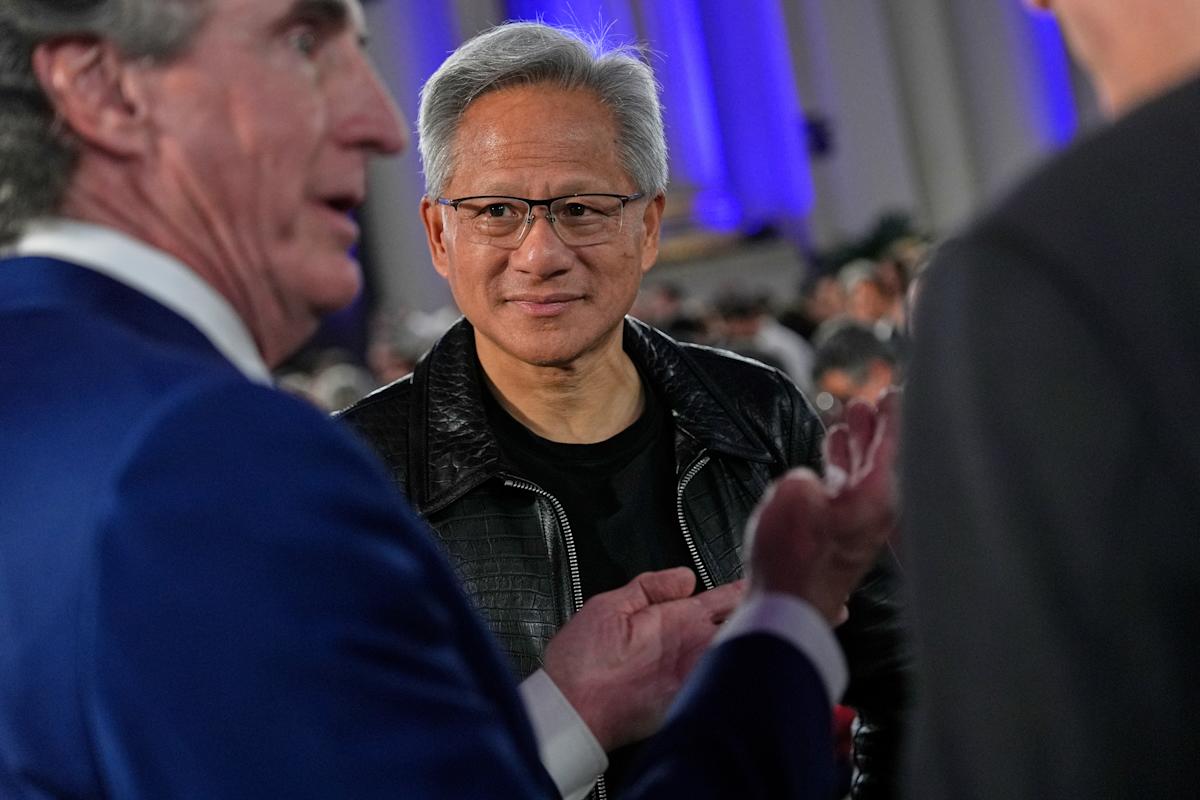WASHINGTON (AP) — China’s cyberspace regulators on Thursday summoned Nvidia (NVDA) over security concerns that its H20 chips can be tracked and turned off remotely, the Cyberspace Administration of China said on its website.
In the meeting, Chinese regulators demanded that the U.S. chip company provide explanations on “backdoor safety risks” of its H20 chips to be sold in China and submit relevant materials, the office said.
“Cybersecurity is critically important to us. NVIDIA does not have ‘backdoors’ in our chips that would give anyone a remote way to access or control them,” an Nvidia spokesperson said in a statement to AP.
It came just about two weeks after the Trump administration lifted the block on the computing chips and allowed Nvidia to resume sales of H20 chips to the Chinese market. Jensen Huang, chief executive of Nvidia, made the announcement with fanfare when he was in Beijing earlier this month.
The latest episode appears to be another turbulence in the tech rivalry between the United States and China, which have left businesses in both countries tussling with governments over market access and national security concerns.
Any safety concern by Beijing could jeopardize the sale of H20 chips in China. Citing unnamed U.S. AI experts, the Chinese regulators said Nvidia has developed mature technology to track, locate and remotely disable its computing chips. The regulators summoned Nvidia to “safeguard the cybersecurity and data security of Chinese users,” in accordance with Chinese laws, the statement said.
The statement also referred to a call by U.S. lawmakers to require tracking and locating capabilities on U.S. advanced chips sold overseas.
In May, Rep. Bill Huizenga, R.-Michigan, and Rep. Bill Foster, D.-Illinois, introduced the Chip Security Act that would require high-end chips to be equipped with “security mechanisms” to detect “smuggling or exploitation.” The bill has not moved through Congress since its introduction.
Foster, a trained physicist, then said, “I know that we have the technical tools to prevent powerful AI technology from getting into the wrong hands.”
The U.S. still bans the sale to China of the most advanced chips, which are necessary for developing artificial intelligence. Both countries aim to lead in the artificial intelligence race. The Trump administration in April blocked the sales of H20 chips, which Nvidia developed to specifically comply with U.S. restrictions for exports of AI chips to China.
After the ban was lifted, Nvidia expected to sell hundreds of thousands more H20 chips in the Chinese market.

